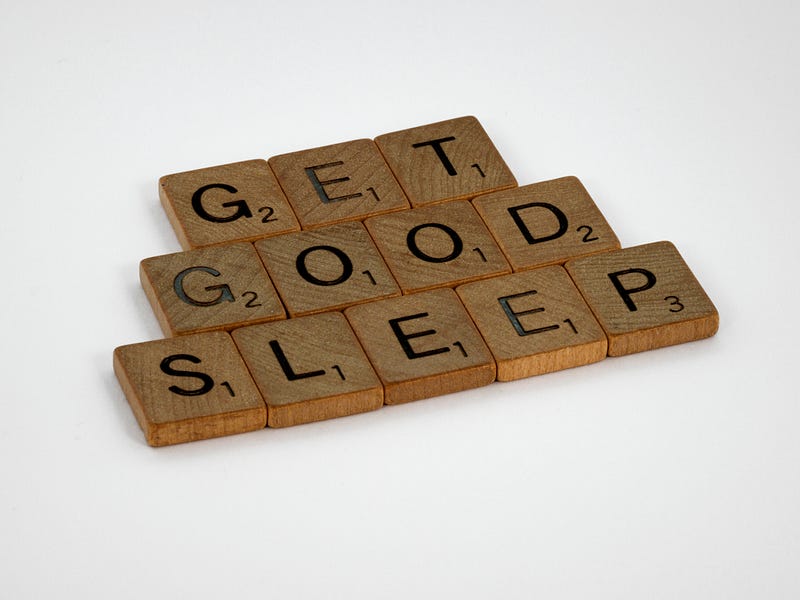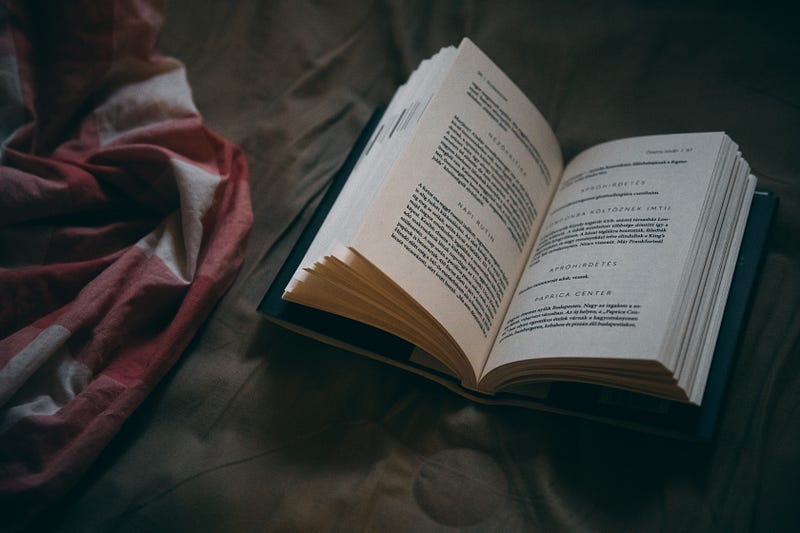Why should you sleep for 8 hours?
"Sleep is not a disposable luxury - it's a non-negotiable biological necessity." -Matthew Walker

While it may not sound obvious to many, there’s, in fact, one thing you can do that will allow you to have more time to do what you love while you’re on earth. Not only that, but it will improve your quality of life by making you happier, more productive, wealthier, and healthier. It will even help you fight most diseases that exist. Oh, and there are no downsides to it and it is completely free. With that said, how could you not implement it in your life?
In a recent interview, I got asked what would be the one book everyone should read as soon as possible in their lives. Being an artificial intelligence researcher and entrepreneur, the answer seemed obvious: Why We Sleep: Unlocking the Power of Sleep and Dreams by Matthew Walker, Ph.D.
Before you ask, yes, this is the most relevant book for my work and yours too. It will change your conception of sleep forever as it did for me and improve your life in ways you couldn’t even imagine. Read it or listen to the fantastic audiobook version, as you wish, but go through it as soon as you can. You will not regret the time you invest going through this bestseller. The sooner you read this gem the longer and better your life will be.
This article will detail key points that marked me regarding the benefits of sleeping more (7–8 hours) and how you can improve your sleep. But first, let’s start with a quote from Matthew Walker himself;
From the point of view of survival and evolution, sleep only makes sense if it is essential to life. — Matthew Walker
Indeed, why else would we voluntarily shut down for 8 hours, defenseless, and risk not waking up every day if it wasn’t something necessary? To me, this simple fact is convincing enough to understand its importance and necessity, and therefore the danger of lacking sleep. We hear too many entrepreneurs, inventors, and even some athletes vent the merits of sleeping 4 hours a day, and it has to change. Thanks to Matthew Walker and other specialists popularizing the subject and discovering the real power of sleep, I believe it will happen. Being a fervent advocate of sharing and explaining science, my goal here is to spread the beauty of sleep within my community, since both researchers and entrepreneurs tend to cut sleep to check more boxes in their to-do lists, while it will have the opposite effect on the long run.

(8 hours of) Sleep has many benefits. Here’s only 6 of them
- Sleep helps with A LOT of diseases, but lack of sleep also worsens a lot of them. Your immune system needs sleep to fight off diseases and infections.
This study by Michiaki Nagai et al. shared that sleeping 6 hr or less, or 9 hr or more, had up to 1.7 times the total age-adjusted death rate of sleeping 7 or 8 hr per night. Similarly, the American Cancer Society has seen that this rate went up to 2.80 times with less than 4 hours! Indeed, the relationship between our immune system and sleep duration has been reported to be U-shaped, and aiming at 7-8 hours of sleep seems to be the sweet spot for most people. - REM sleep bolsters learning and memory. Deep or rapid eye movement (REM) sleep changes your brain's neuronal structure by creating new connections for learning what’s essential and deleting useless connections that would act as noise or unnecessary information. A good night of sleep is often much better than studying the night before an exam. Not only to be fresh and ready for the exam but even for learning.
- NREM sleep aids physical recovery. Non-REM sleep is when you wind down, and your body recovers. It both heals physically and allows you to recover from illnesses. NREM sleep makes you feel rested and has a function for memory consolidation, which is another reason why sleeping is better than studying a few more hours before the deadline.
- Lack of sleep makes driving deadly. Drowsy driving can be more dangerous than alcohol. Even if you are unaware of it, having less than 5 hours of sleep can cause you to have “microsleeps”. They happen when you are sleepy, mostly at night, but also during the day if you don’t get enough rest. Microsleeps are momentary gaps in awareness, where your brain literally shuts off for a short time and can be deadly when driving.
- Sleep helps us regulate our appetite and make healthier food choices. Enough sleep is a powerful diet for weight loss in itself. Also, when you sleepin’, you can’t be eatin’!
- Sleep is highly correlated with your willpower. Studies [1,2,3] have linked sleep with emotional regulation and our decisions. Lacking sleep will make you feel more frustrated and impulsive, which will hurt your patience for learning something new or tackling difficult tasks. Poor sleep quality will also damage your decision-making process. Similarly to food, you will be more likely to make good short-term decisions, e.g., for taste, than good long-term decisions, e.g., the healthy choice. But this happens for all decisions you will take during the day, whether watching TV over learning to play the Piano or making a risky investment over a safer long-term play when your current situation doesn’t allow you to take such risks.
Now that you know these benefits of a good night of sleep, you may want to implement it right away and have difficulty doing so. Here are my preferred tips from the book to help you change your sleeping habits for the better.

Eight tips to improve your sleep quality and time
- Find a routine. Humans are creatures of habits and it will help to fall asleep if you stick to the same schedule every day.
- Cut the late-night sports. Late-night cardio can make it hard to wind down and fall asleep. Save this for the morning or when you feel your best to work out. But don't slack on physical exercises! Aim for at least 150 minutes of moderate aerobic activity per week for your wellbeing, and it will help you fall asleep more easily.
- Reduce caffeine and nicotine consumption. Caffeine has a half-life of about 5 hours. This means you will still have half the caffeine in your system 5 hours after your coffee, half of this 5 hours later, etc. Try not to take coffee, or opt for decaf, after 1 pm or so!
- Eat light at night. Eating heavy meals can be hard for digestion and wreck your sleep. Same for drinks. You’re not sleeping if you need to empty your bladder every hour!
- Leave time to unwind. Close your screens a few hours before sleep and take the time to read instead, or use blue-light-blocking glasses and other apps to reduce the blue lights of your devices.
- Avoid lying in bed for too long. Your bed, and room, should be reserved for sleep so your brain can associate it with sleeping and not other activities.
- Follow your circadian rhythm. If your job allows it, start working earlier or later in the day, depending on when your body naturally falls asleep. We are not all made for 8–5 work. Some people naturally fall asleep much later and cannot have 8 hours of good sleep if they wake up at 6 am.
- Melatonin and sleeping pills can help you fall asleep, but using them may not be the best solution for your case. There are many reasons why you could have trouble sleeping, and they cannot all be fixed with melatonin or drugs. Talk to a sleep specialist! If you feel tired every morning, try asking your doctor about sleep apnea! It is much more common than we think and might be worth looking into that! The solution is becoming pretty cheap and less invasive.
I hope this article could help you understand why sleep is beautiful, convince you to learn more about it, and not underestimate its necessity. Learn more about sleep in Matthew Walker’s fantastic book or new podcast, “The Matt Walker Podcast”.
p.s. You cannot “catch up” sleep! You should aim for 7–8 hours a day. 5 hours on the weekdays and 10 hours on the weekends won’t work! Sleep hours cannot be banked, but it’s not too late to switch for the best and start living your best life, with enough sleep!

